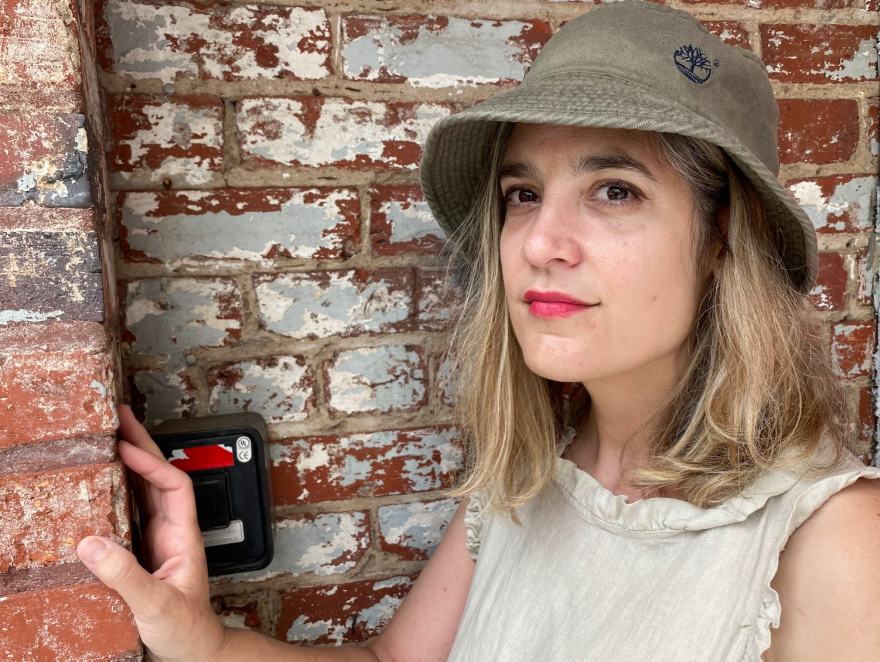In a conversation about her writing career, Melanie McGee Bianchi sees a distinct line between her work as a journalist and as a fiction writer. Until recently, her imagination has taken a backseat.
“I’ve always felt a little hounded to make a living and, still at this age, I never had the space or time to write... and I’ll overwhelm myself if I think I have to sustain a whole novel,” Bianchi said. “And once you work for months, you get sick of these people in your story. I can’t even imagine sustaining a whole novel... but (the short story form) feels less overwhelming.”
Bianchi makes a living editing three regional lifestyle magazines in Western North Carolina. She recently published her first collection of short stories, titled “The Ballad of Cherrystoke.” She reads from “The Ballad of Cherrystoke” Aug. 17 at Malaprop’s Books in Asheville and gives a book talk at Brandy Bar in Hendersonville Sept. 14.
Bianchi said her experiences in Asheville during the 1990s inspired some of the stories.
“I have a lot of little digs at newcomers in there. On my book trailer, it talks about ‘Oh, this is what Asheville used to be like,’ but that’s not why I wrote it or anything,” she said. “But I wanted people to know kinda what it used to be like when things were more casual and you could rent a cheap cabin out in the woods and just sort of scrape by, or capture the beauty of a swimming hole or what Lexington Avenue was like back in the day."
Bianchi grew up with a twin sister just south of Lake Ontario in Western New York. She recalls writing as early as 8 and having her first published poem at 14.
“My sister and I, we were considered unsuitable for any sort of preschool. We were very strange little children and we only talked to each other. Even before kindergarten, we were considered slow in the parlance of the day, just because we didn’t talk,” she recalled. “But once we got into kindergarten, first grade, we were reading on such an advanced level that they created a special reading group just for us. They realized we were verbally advanced. That was our first earmark there was something else going on there.”
Bianchi moved to Western North Carolina 30 years ago without much of a plan.
“I looked up in the library of places you could go to work for the summer,” she said. “I didn’t have a car. I didn’t know how to drive yet. I was very sheltered for 21. So you could work in national parks, and Pisgah Inn was the closest place I could get someone to drive me up (to) for the summer.”
Shortly after moving to this area, Bianchi authored her first story collection on a manual typewriter. Sassy Magazine gave Bianchi her first published story. But needing to earn a living, she reported on the arts for the Mountain Express and, within a year, became the newspaper’s arts editor.
“I was thrown in over my head pretty much overnight, but I made it work,” she said.
Bianchi settled into journalism, and she called raising her son, who is now 15, the best years of her life. Her fiction writing was a natural casualty of her limited time.
“I think it took me way longer to find my short story voice than it would suggest by how long I’ve been in publishing,” she said. “I still get countless subscriptions for countless magazines that rejected me, so I started reading more, writing more, and I found my voice more as I went along. And I also made a point of reading more contemporary fiction to see what I didn’t like.”
Bianchi said she draws more on Southern writers such as David Sedaris and Flannery O’Connor than on writing from Appalachia. She said she finished writing her story collection during the pandemic, fueled by sustained adrenaline. Her stories read like conversational anecdotes passed over the backyard firepit.
“I remember the minute a real voice came to me—it felt like my voice—and that was writing ‘Antique Power Association.’ It's the shortest story in the book, it’s the last story,” she said. “It started as an essay because it actually was based on a real-life event. But I changed all the names and turned it into a short story.”
With her paperback book now in stores, Bianchi said she put a quick halt to questions from her editor about a follow-up collection. So for now, Bianchi is content editing the work of other writers on the pages of three of our region’s most glossy magazines.
“I had an energy during those years writing this that I don’t have now. I’m no spring chicken anymore,” she said. “To write another book, something would have to go, like a day job.”


